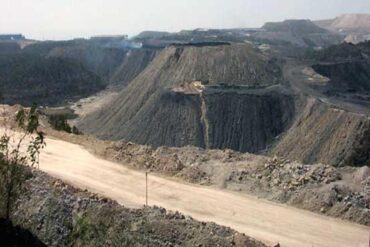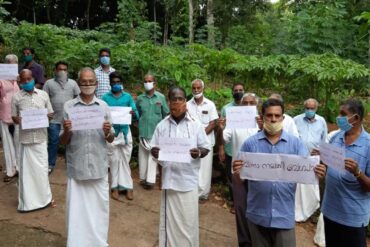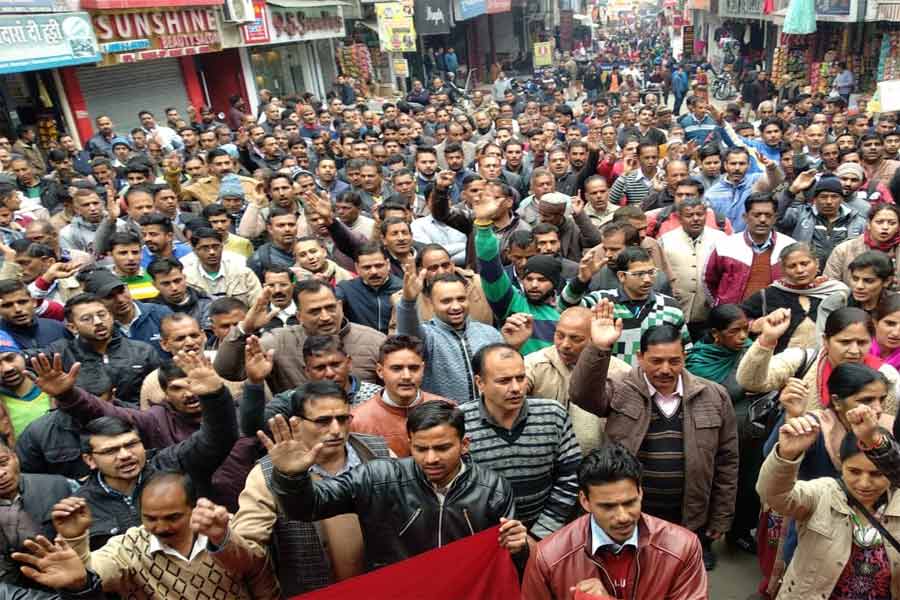The continuing protests in the country, especially by the students against the passing of the Citizens Amendment Bill in Parliament in a hurry without consulting the political parties, are spreading in all states with more and more people of all religions and communities joining the movement against the implementation of the CAA. The ruling regime is adamant in implementing their agenda and so all indications are that this turmoil on the issue of CAA will continue.
Even as this major issue of political and Constitutional importance is happening there are massive preparations on to make the general strike called on January 8, 2020, a big success. 25 crore workers from organised and unorganised sectors are expected to take part in the strike. A ten-point charter of demands have been submitted to the government by the leading trade unions of the country led by AITUC, INTUC, CITU and HMS. The RSS led BMS may not join the strike but the organisation supports the demands in the charter and the BMS leaders have openly come out against the jobless economic policy and opposes the sale of the public sector companies at cheap prices.
This near total unity of the trade unions of the country on the charter of demands and against the economic policies of the Modi 2 government has set the stage of a major confrontation between the working class of the organised sector and the Modi govt before the presentation of the second budget. The slowdown is so pervasive that the former chief economic adviser of the Modi govt Dr Arvind Subramanian has termed is as the “Great Slowdown” on the lines of the Great Depression of USA in 1929. He said that the Indian economy is headed towards ICU which means that the economy is near coma and the patient needs drastic treatment for survival.
When a pro Modi economist is forced to say such things due to the gravity of the present nature of the Indian economy, the Government is talking of other issues including the building of Ram temple at Ayodhya in record time and not creating crash jobs for the millions of unemployed youth at the earliest. The unemployment level is at 45- year high and the rural income has fallen for the first time in the recent period leading to drastic decline in consumption which has led to fall in rural demand.
The Charter of ten points contains demands including urgent measures for containing price rise and concrete measures for generating employment apart from ensuring social security for all workers and a minimum wage of Rs 15,000 per month. But the other most important issue is the stoppage of privatisation of the central public sector undertakings. This has assumed special importance now in the context of the centre’s latest decision to privatise the blue chip oil company BPCL which has been opposed by all the trade unions of the oil sector including the officers’ organisations of the PSUs. The RSS dominated BMS also has strongly protested and the organisation has adopted a resolution decrying the government move and asking its own leaders to give up the idea of selling the precious jewels of the family at cheap prices.
The RSS-affiliated Swadeshi Jagran Manch is particularly upset about the way the government is selling the basic industries under the public sector, just to cover annual budget deficits. PSEs are being sold cheaply even without concern of the nationality of prospective buyers. The government wants to raise some Rs1,50,000 crore from strategic sale of PSEs. Few domestic private industrial groups have surplus funds to take over such large assets. SJM is strongly opposed to such sales. The Sangh Parivar is openly resisting the privatisation of PSEs, especially those in strategic areas contributing substantially to the economy, such as Bharat Petroleum, SAIL, BHEL, NALCO, SCI, HAL, GRSE and Container Corporation, among others.
In a resolution passed at its national assembly in Haridwar, SJM said the government’s proposed strategic disinvestment of PSEs was “against national interest…. A white paper is needed on the previous disinvestment of HPCL, where ONGC acquired the equity.” How has this benefited HPCL operations, SJM questioned. On the strategic sale of BPCL, it said there “are rumours that the Saudi Aramco is eyeing these assets. This is not only unacceptable but also dangerous. The asset created with the national sentiments and hard work shouldn’t land in the lap of the foreign oil companies—who see these assets only as a statistic to swell their valuation,” it said.
That way the January 8 general strike charter has been able to evolve a national consensus on the issues facing the working class. How the Modi2 government deals with this strike action, will have an important bearing on the political course of the country in 2020.
By Arrangement with IPA
Cover Image: File Pic







